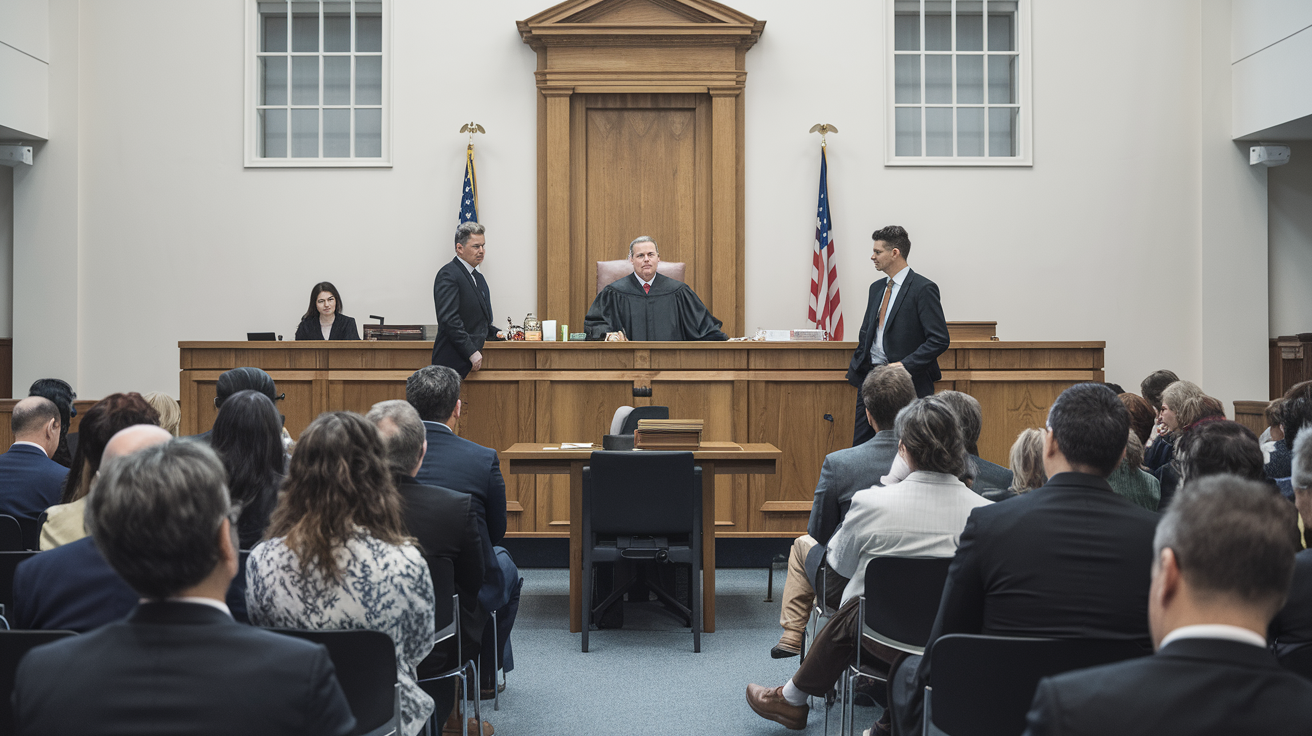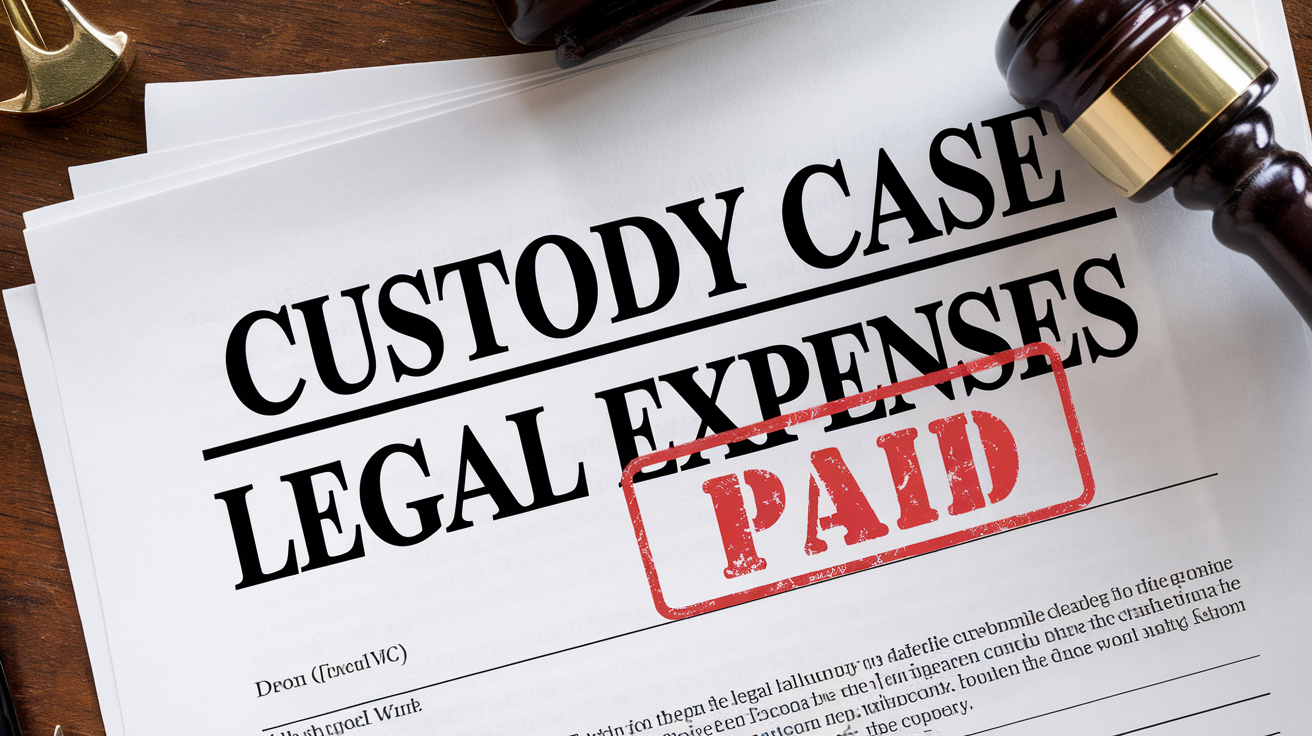When parents go to court about custody, someone needs to pay those bills. But who? That’s not always a simple answer.
Every day, parents across the country face the same question about custody costs. Between filing fees, lawyer bills, and court charges, the expenses can feel like a mountain to climb.
Some parents empty their savings accounts, while others wonder if they can even afford to start the process.
Here’s the good news: you don’t have to figure this out alone. In this blog, we’ll walk through exactly what costs to expect in your custody case.
Implementing General Rules While Paying in Child Custody Cases
In custody cases, the general rule about court costs follows a simple principle: each person pays their own way through the legal process.
This means both parents typically handle their own attorney fees, filing costs, and other expenses tied to their case. Courts start with this basic approach because it seems fair – both parents have a stake in the outcome.
But like many rules, this one isn’t set in stone. Courts look at each case’s special details before making final decisions about who pays what. They think about things like how much money each parent makes, how they’ve acted during the case, and what’s best for the children.
Here’s how This General Rule Shows up In Real Situations:
- A parent with a higher income might need to help cover the other parent’s legal fees
- When one parent files unnecessary motions, they might have to pay the other’s costs
- If a parent skips court dates, they could end up paying the expenses for rescheduling
- Parents who work together and settle quickly often save money by splitting the costs
- When one parent lives far away, they might need to pay more for travel expenses
Certain List of Exceptions that Courts Usually Consider

Think of a case where one parent makes a lot more money than the other – making both pay the same amount wouldn’t make sense.
The judge looks at each family’s situation carefully, like pieces of a puzzle. They consider things like income differences, the special needs of children, and how each parent has handled the case. This flexible approach helps make sure everyone gets treated fairly.
1. Financial Standing
- The court reviews your monthly income statements and current savings to assess your ability to pay.
- Your regular bills, including rent, car payments, and child support, show the court what you can afford.
- Recent job changes or losses may affect how much you can contribute to court costs.
2. Behavior Patterns
- Courts track if you attend all scheduled meetings and submit paperwork on time.
- Your willingness to share information about finances shows good faith to the judge.
- The way you communicate with the other parent matters to the court.
3. Case Details
- The court looks at who filed the case and their reasons for going to court.
- Your efforts to settle matters outside of court influence the judge’s decision.
- The number of court appearances and length of the case can impact cost distribution.
What are the Legal Expenses for Custody Cases

Custody battles aren’t just emotionally exhausting—they can also be expensive. The costs vary depending on the complexity of the case, how much parents agree (or disagree), and whether it goes to trial. Here’s what to expect when it comes to legal expenses.
- Attorney Fees: Generally, attorneys charge by the hour, ranging anywhere from $150 to $500 per hour, depending on experience and location. Some offer flat fees for uncontested cases, but if things get complicated, expect the bills to pile up fast.
- Court Fees: Filing fees alone can cost $100 to $400, depending on the state. Need to submit motions or additional paperwork? Those come with extra charges, too.
- Mediation Costs: If the court orders mediation to settle custody disputes, parents often split the cost. A session can range from $200 to $1,500, depending on the required meetings.
- Custody Evaluations: The evaluation for an expert opinion on what’s best for the child can cost anywhere from $1,000 to $10,000, depending on the level of detail and the expert’s credentials.
- Guardian ad Litem (GAL) Fees: In high-conflict cases, a guardian ad Litem (GAL)—an attorney or advocate for the child—may be appointed. Their fees vary but often fall between $1,000 and $5,000. If the case is lengthy, costs can climb even higher.
- Miscellaneous Expenses: Court-ordered parenting classes, drug tests, psychological evaluations, and travel expenses (if parents live far apart) can all add up. These extras might not seem like much at first, but together, they can cost hundreds or even thousands of dollars.
- Trial Costs: Most custody cases settle before trial, but if yours doesn’t, be prepared for a major financial hit. Trial preparation, expert witnesses, and court appearances can push legal expenses well over $10,000 to $40,000 or more.
List of Ways to Minimize Legal Expenses in Custody Battle
Based on these factors, legal costs in custody cases can vary widely. It can range anywhere from $2,000 up to about $30,000.
However, several strategies can help manage these expenses without compromising the quality of representation or case outcomes.
| Strategy | Description | Cost Impact |
|---|---|---|
| Document Organization |
|
Reduces billable hours spent on document review |
| Communication Efficiency |
|
Minimizes communication-related charges |
| Mediation Participation |
|
Avoids expensive court proceedings |
| Clear Case Objectives |
|
Prevents wasteful legal spending |
| Professional Cooperation |
|
Reduces conflict-related legal costs |
Conclusion
The path through custody cases isn’t just about money – it’s about your children’s future. Sure, the costs matter, but they’re part of making sure your kids get the best possible outcome.
Every dollar spent moves you closer to stability for your family. Although the rules might seem complex, they serve a clear purpose – to make sure both parents get fair treatment.
Most times, each parent handles their own fees, but judges can order cost-sharing when needed.
What does this mean for you? Start saving early if you can. Keep good records of your expenses. Talk to your lawyer about payment plans.
Most importantly, stay focused on working things out with your ex when possible – it costs less than fighting in court.
Frequently Asked Questions
Who Wins Most Child Custody Cases?
Statistics show that courts focus on the child’s best interests rather than favoring any parent, though mothers receive primary custody more often when fathers don’t actively seek it.
Who are The Best Witnesses for a Child Custody Trial?
Teachers, pediatricians, and child psychologists make strong witnesses as they provide professional, unbiased observations of the child’s development and family dynamics.
What Type of Custody is Best for a Child?
The most beneficial custody arrangement depends on the child’s specific needs, age, and family situation.








